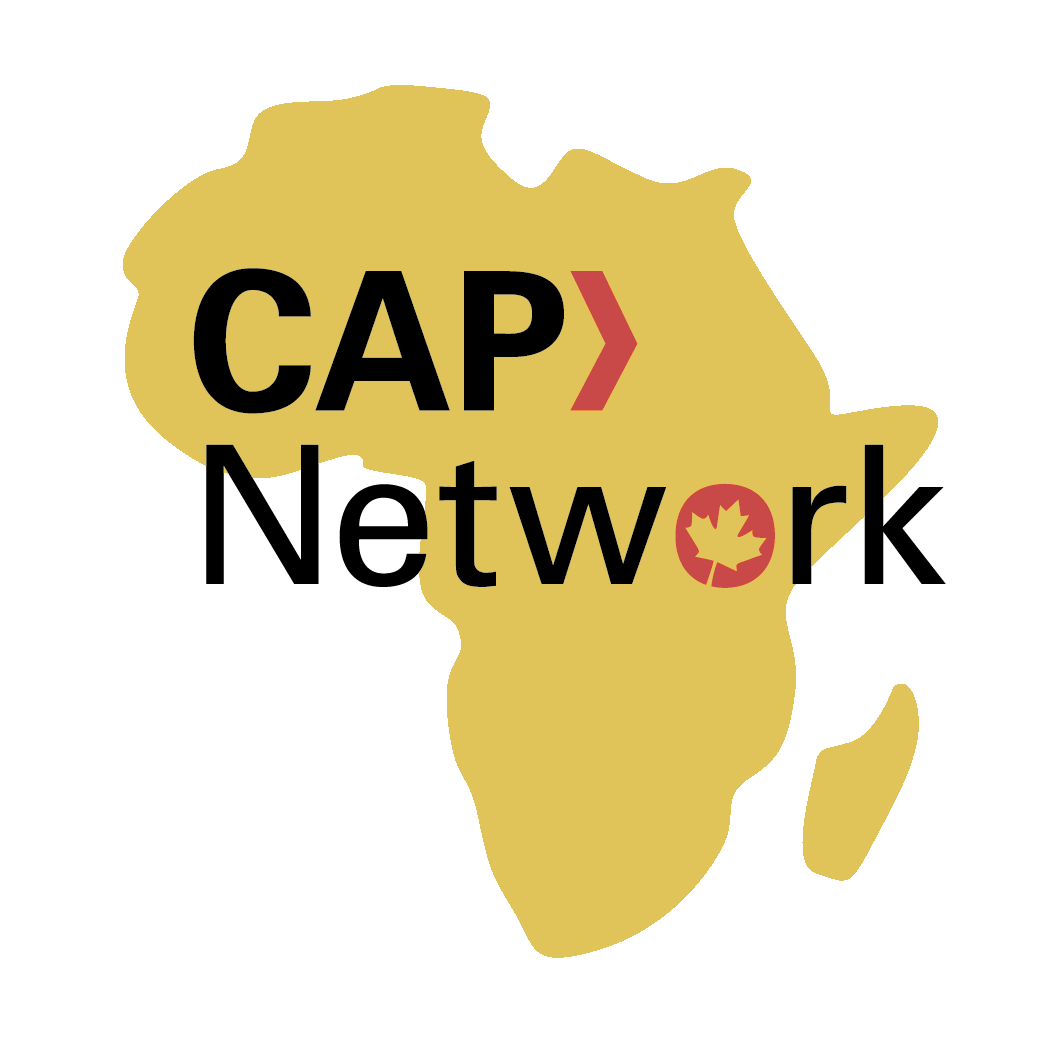Peer Learning Visits Build Knowledge and Learning Networks
CAP Network actively facilitates peer learning visits to support capacity building with our African project partners. It is valuable for hands on knowledge sharing, seeing firsthand what’s working in other projects. It’s also a great way to support the establishment of peer support networks, providing sustainable opportunities for learning, sharing and collaboration.
A Report on a Peer Learning Visit by CAP Network Partner Chikanjebela Women’s Group and established local NGO Program for Vulnerable Children and Women in Mpika – prepared by CAP Network Zambia Project Officer Prayreen Chisanga.
DAY ONE:
The Meeting started with individual introduction from each team, then welcoming remarks from Joyce N’goma the executive Director for PVCW who in her remarks welcomed Chikanjebela Women’s Club. She later said she was happy for PVCW to be considered one of the organisation Chikanjebela decide to visit for capacity building.
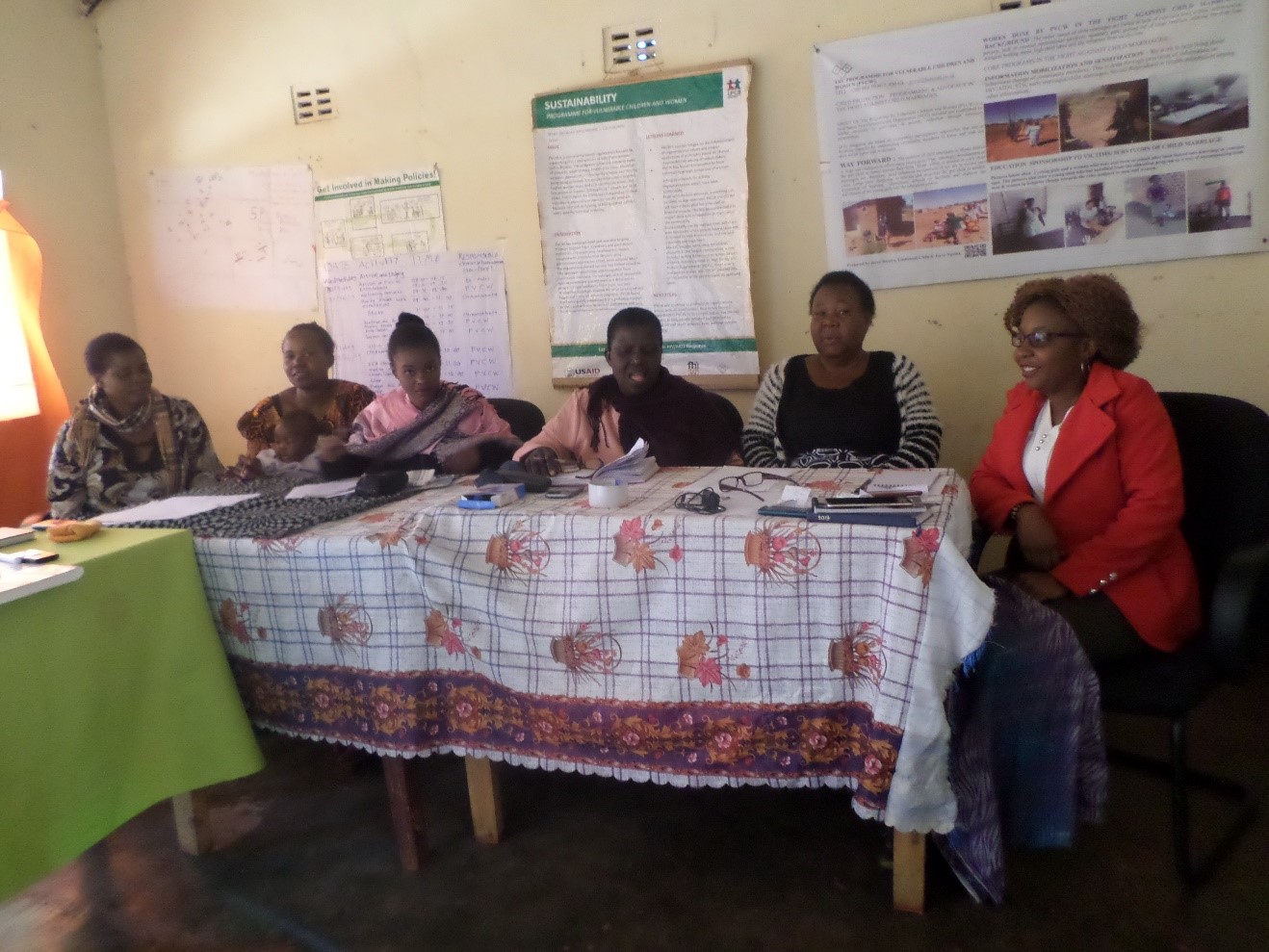
Both teams were given time to explain their organisation overview current projects activities and there way of implementing them with a question-answer session following after each overview. The first organisation to give an overview about their work was Chikanjebela Women’s Club. The introduction started with what made the women to visit PVCW which is to learn other ways of working with donor funds and mostly to see and learn how PVCW is implementing the SANI Project. CWC continued explaining how the club was formed, what their vision, mission and objectives are. The current project for CWC is SANI and it is the first donor funded project they have worked with that’s why it is important for them to have this visit has it will help them get exposed to new ideas of implementing donor projects.
There after PVCW followed explaining how they operate and how they are implementing SANI project activities. Among the explanation given on how PVCW is implementing SANI activities, there following were things that CWC learnt and wish to incorporate in their activities before closure of the project:
- As CWC have garden component, PVCW also has backyard garden activities. For this one, they have grouped beneficiaries into groups of 10 to 15 who they call Support Groups so that they can be monitoring their performance easily.
- They also have trained women who they call Mentor Mothers. These are women who are HIV positive who work within health post or clinics to educate others especially women and girls of reproductive age during anti-natal and under-five clinic on matters to do with nutrition and HIV. These mother work as volunteers with nothing in return. This came out as an encouragement to the CWC.
- They also have trained men to be Male Champions who mostly help in sensitizing the community especially men on Gender Equity and HIV who also work as volunteers.
They also shared their challenges with the same structure of implementation.
- Mentor Mothers – After being trained, some mothers thought they will be employed at health centers or clinics of which most of them dropped out only 15 are active out of 30.
- Support Groups – Many SP members wanted to be getting paid in any form especially gifts in king and there was self-stigma among many support groups members
- Some areas are far and impassable especially in rain season. Which makes it had to reach.
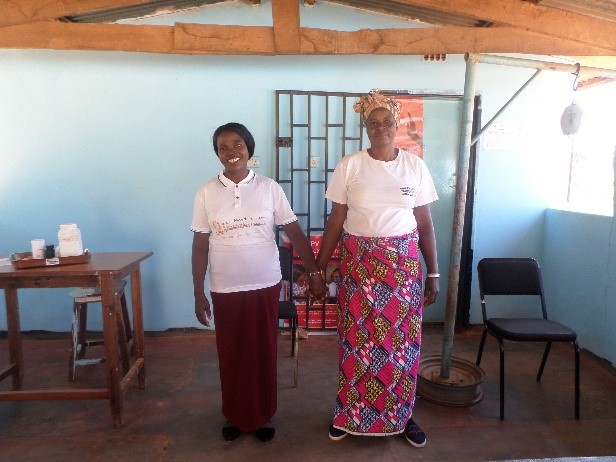
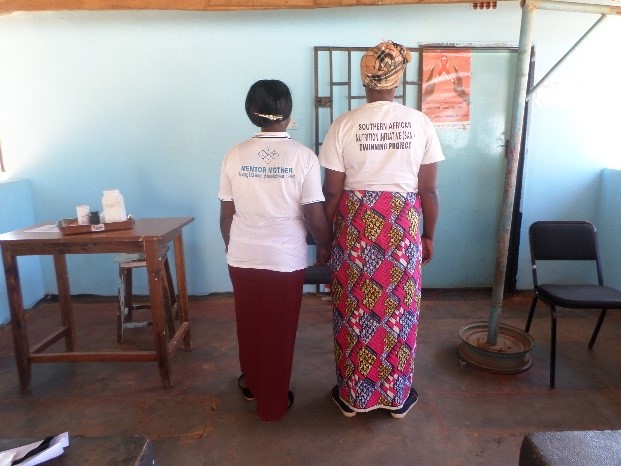
DAY TWO:
On day two (2) of CWC visit, the women were taken to some areas where PVCW is implementing SANI project. The first area to be visited was Chikwanda Health Post where we met Ireen Chibesa a mentor mother in Chikwanda Area. She explained how she works as a mentor mother and what she benefits from the work she does.
“I don’t really benefit so much except that it makes me happy to see other people accepting their statuses, living health and especially see under-five children doing well” .
– Ireen Chibesa PCVW Mentor Mother-
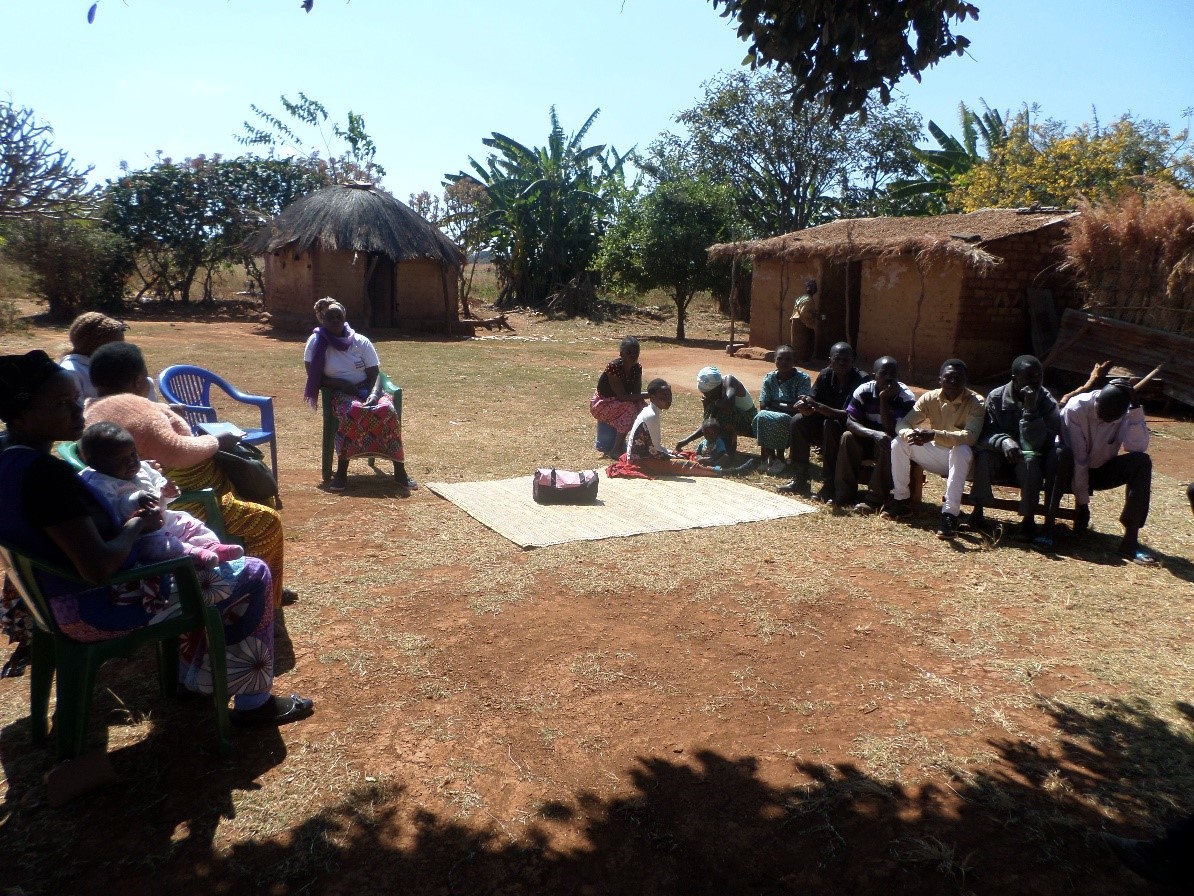
The second place we visited is ZCA Clinic where we met another mentor mother Mary, there after we met Chintu/Sefu support group before we could break for lunch. The group was created after ICAD’s funds came in. This was done in order to increase PVCW catchment area and easy for them to meet their target. In this group there were male champions who we met and they shared their role in the project which is to sensitise fellow men in their community on issues of HIV and how gender equity is so important in everyone’s life.
The last place we visited was Danger hill support group. We met some members of the group and one mentor mother Christine Bwalya who explained her role and a few challenges that she encounters during her work but she never takes it to heart and has continued to work. The challenges that Christine faces during her work mostly is long distance to the clinic. She has no bicycle but relies on community bicycles and also it is difficult for her to work during rainy season due to transport costs.
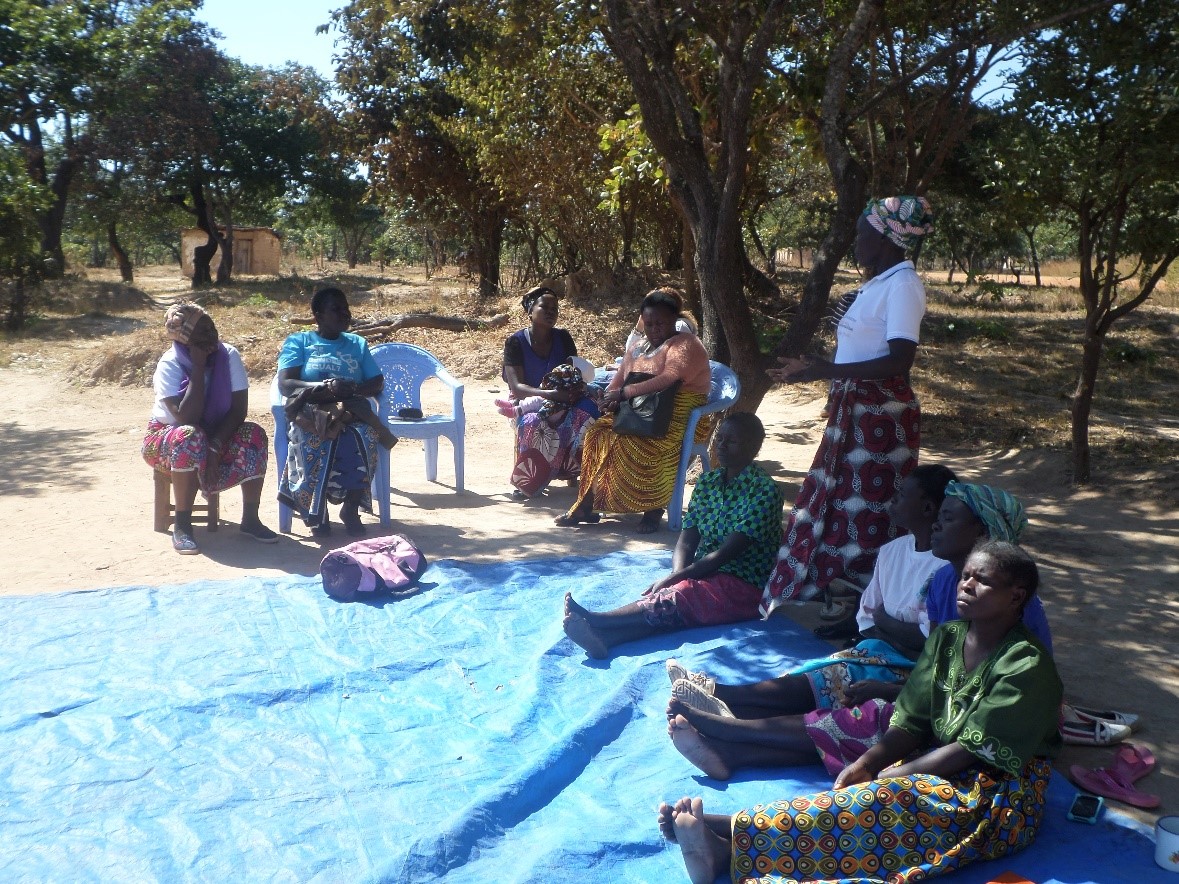
“I just love to work because I know there are people like me (HIV positive) who needs help and information to continue living and that one day things may get better if donors continue helping us and we continue working together as a community” -Christine Bwalya – PVCW Mentor Mother
We wrapped up our peer learning program at PVCW’s offices with closing remarks from Matilda Mwanza – HIV Program Officer encourage CWC to embrace the project and take advantage of it to learn new things that will make them move from being a club to being an organisation someday. She also encouraged CWC to be working together if they want to continue helping the community.
